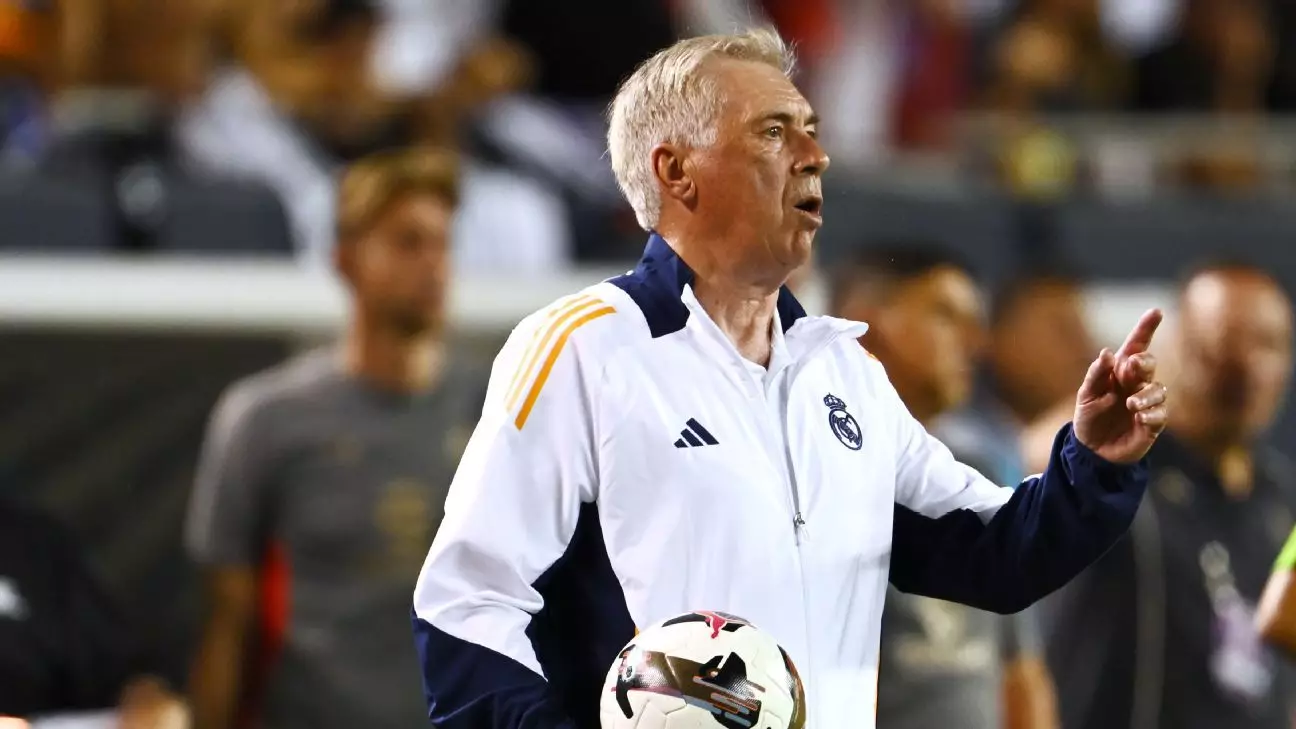The modern football calendar has become an increasingly chaotic affair, with the pressure on players to compete in an overwhelming number of matches. Real Madrid’s head coach Carlo Ancelotti has voiced his concern over this heavy schedule and the physical toll it takes on the players. The integrated expansion of tournaments such as the Champions League and the introduction of the revamped Club World Cup have set the stage for an exhausting season ahead, with elite footballers potentially participating in up to 85 matches. Such a rigorous schedule has brought player wellbeing into sharp focus, with discussions regarding potential pay cuts as a means to alleviate the workload.
Ancelotti recognizes the impact of the calendar and is not dismissive of the players’ frustrations. He suggests that top-level athletes might be willing to accept reduced wages if it meant a reduction in games, thus contributing to fewer injuries and a healthier playing career. His acknowledgment reflects a broader issue in football, where the relentless pursuit of entertainment and revenue generation often sidelines the health of the players. “We have to reflect on this,” Ancelotti said during his news conference, pushing for essential changes to mitigate the fatigue that modern players endure. This proposition of salary adjustments hints at a potential shift in how the football community prioritizes player welfare over financial gains.
The growing concern over the heavy workload has not gone unnoticed by the players themselves. Manchester City’s Rodri recently expressed that players are on the verge of considering strike actions due to the escalating demands placed upon them. This sentiment is echoed by Real Madrid stars like Thibaut Courtois and Dani Carvajal, underscoring a collective worry that players may soon need to take drastic measures to address their grievances regarding overcrowded schedules. Ancelotti remains pragmatically aware that complaints alone will not result in immediate changes to the current season’s calendar. However, he emphasizes that it is imperative to analyze the situation thoughtfully as players begin to contemplate long-term solutions.
While the external pressures surrounding player welfare loom large, Ancelotti’s focus internally remains steadfastly on his team’s performance. Real Madrid enters its next La Liga match following a promising 3-1 victory against Stuttgart, reflecting both a strong start and areas that need improvement. Ancelotti’s assertion that, despite not being at their peak, they are heading in the right direction is indicative of the transitional phase of the season. He acknowledges that a higher level of play tends to develop over the following months, an allusion to the natural rhythm of a football season.
As the discussion of player health intertwines with tactical strategies, there has been speculation on whether Ancelotti might consider a shift in formation, moving from his favored 4-3-3 setup to a more midfield-heavy alignment. He firmly stands by the belief that balance in play arises from collective effort rather than just positional adjustments. The Madrid manager’s emphasis on teamwork and the necessity of mutual sacrifices projects a united front as they strive for an optimized performance.
Beyond the current challenges, fresh talents continue to emerge within the ranks of Real Madrid, promising a bright future. Ancelotti has expressed confidence in Brazilian forward Endrick, who despite his youth has already shown glimpses of brilliance with goals in both La Liga and the Champions League. His integration into starting line-ups more frequently is crucial as Madrid navigates through this grueling season. In another positive note, midfielder Eduardo Camavinga is on the mend from injury, indicating that depth within the squad may soon be reinforced—another vital element as the team confronts an intensive fixture list.
As the football community grapples with the ever-evolving demands of the sport, Ancelotti’s comments serve as a critical call for reflection. Player welfare must be at the forefront of discussions, balancing the commercial aspects of the game with the wellbeing of those who grace the pitch. With the impending threats of strikes and the emotional toll on players, it is clear that the landscape of football scheduling demands urgent reevaluation for the future of the sport. The hope remains that through dialogue and understanding, a path can be forged that recognizes the players as essential to the game, without letting their health become a casualty in the chase for glory.

